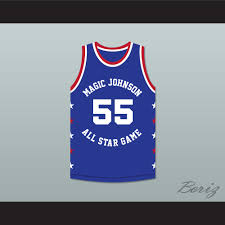
Introduction
Magic Johnson, a name synonymous with basketball greatness, is recognized not only for his incredible skills on the court but also for his substantial impact off it. As a five-time NBA champion and three-time MVP, Johnson elevated the game to new heights. Beyond his achievements in basketball, his advocacy for health awareness, particularly regarding HIV/AIDS, has made him a prominent figure in social justice and community development. This article explores his multifaceted legacy and ongoing relevance in our society.
Magic Johnson’s Basketball Career
Magic Johnson, born Ervin Johnson Jr. in 1959, became a household name during the 1980s as the point guard for the Los Angeles Lakers. Standing at 6 feet 9 inches, he brought a unique style and versatility to his play, combining exceptional passing with remarkable scoring ability. His rivalry with Larry Bird, especially during the 1984 NBA Finals, captivated sports fans and contributed to the NBA’s popularity in that era.
Johnson’s career stats reflect his undeniable talent—averaging 19.5 points, 11.2 assists, and 7.2 rebounds over his 13 seasons. His contributions helped the Lakers to championships in 1980, 1982, 1985, 1987, and 1988. In 1991, Johnson shocked the world by announcing his HIV diagnosis, leading many to believe his career was over. However, he returned to play in the 1992 All-Star Game, helping raise awareness about HIV/AIDS and dispelling myths surrounding the disease.
Health Advocacy and Business Ventures
Post-retirement, Magic Johnson transformed his focus toward health advocacy, using his platform to educate communities about HIV/AIDS. As a living example of hope and resilience, he has inspired many with his message of safety, awareness, and the importance of regular check-ups.
Furthermore, Johnson has successfully ventured into business, establishing Magic Johnson Enterprises, which has invested in various industries, including cinema, restaurants, and real estate. His company focuses on fostering economic growth in underserved communities, showcasing his commitment to social upliftment.
Conclusion
Magic Johnson’s legacy transcends sports; he embodies resilience, transformation, and public service. His dual role as a basketball icon and an advocate for health awareness makes him an influential figure in today’s world. As we reflect on his contributions, it is clear that Magic Johnson’s impact will continue to resonate beyond the basketball court. With ongoing efforts in health advocacy and community development, Johnson exemplifies how sports figures can inspire societal change, making his story relevant for generations to come.



